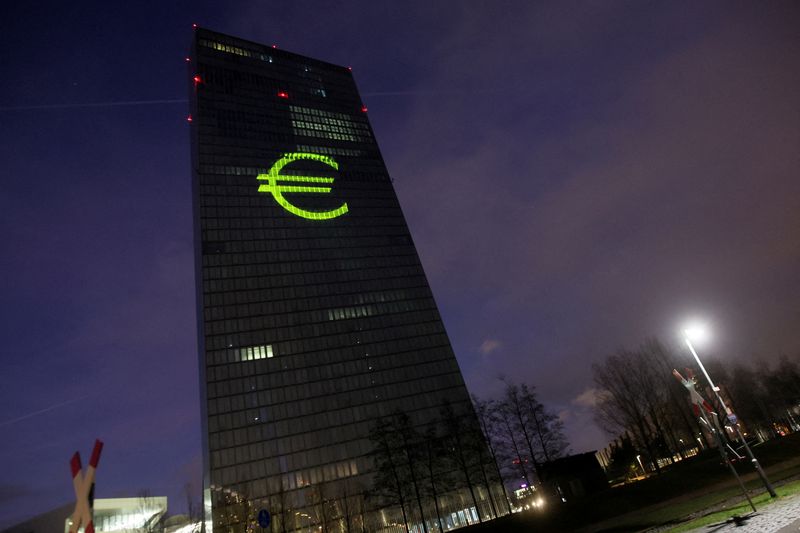
- All Instrument Types
- Indices
- Equities
- ETFs
- Funds
- Commodities
- Currencies
- Crypto
- Bonds
- Certificates
Please try another search

Bundesbank's Nagel: Further Clear Rate Steps Needed Despite Recession Risk
 © Reuters
© Reuters
By Geoffrey Smith
Investing.com -- The European Central Bank will likely need to take more aggressive action like last week's record 75 basis point interest rate hike, Germany's central bank head said in an interview on Monday.
"Thursday's step was a clear sign and if the inflation picture stays the same, further clear steps must follow," Deutsche Bundesbank President Joachim Nagel told the radio station Deutschlandfunk in an interview, adding: "even in the near future."
Nagel said bringing down inflation - which he said had broadened considerably from its initial origins in energy prices - must take priority, even at the risk of causing a recession.
"It can't be ruled out that we see lower growth rates...that, possibly, we have a recession. That may well be," Nagel argued. "But at its heart, stable prices are more important in the end for medium- and long-term growth and a good outlook for the Eurozone."
The ECB's forecasts, updated last week, still assume that there will be no recession in the Eurozone, despite the seemingly inevitable rationing of energy this winter amid a war in Ukraine that took a dramatic turn at the weekend, with Ukrainian forces recapturing some 3,000 square kilometers of territory occupied by Russia.
"We possibly have to get through a fallow period, but at the moment it looks like this fallow period and the fall in economic output won't be so strong," Nagel said.
His words were echoed by ECB Vice President Luis de Guindos, who was quoted by newswires as telling a conference in Spain on Monday that even if the Eurozone does endure a recession, it will be less dramatic than the one a decade ago. He still argued that a "very low growth, but without a recession" was the likelier outcome.
The euro rallied on the comments in early trading on Monday, also helped by rising hopes that Ukraine's battlefield gains could hasten the end of the war. By 05:45 ET (09:45 GMT), the single currency had tested $1.0200, its highest level in over three weeks, before retreating to $1.0162, still up 1.2% on the day.
Also supporting the euro was a report over the weekend in the Financial Times which said that the ECB will discuss how to reduce its massive portfolio of bonds at coming meeting, only a couple of months after ending its net purchases.
Related Articles
Are you sure you want to block %USER_NAME%?
By doing so, you and %USER_NAME% will not be able to see any of each other's Investing.com's posts.
%USER_NAME% was successfully added to your Block List
Since you’ve just unblocked this person, you must wait 48 hours before renewing the block.
I feel that this comment is:
Thank You!
Your report has been sent to our moderators for review






Add a Comment
We encourage you to use comments to engage with users, share your perspective and ask questions of authors and each other. However, in order to maintain the high level of discourse we’ve all come to value and expect, please keep the following criteria in mind:
Perpetrators of spam or abuse will be deleted from the site and prohibited from future registration at Investing.com’s discretion.